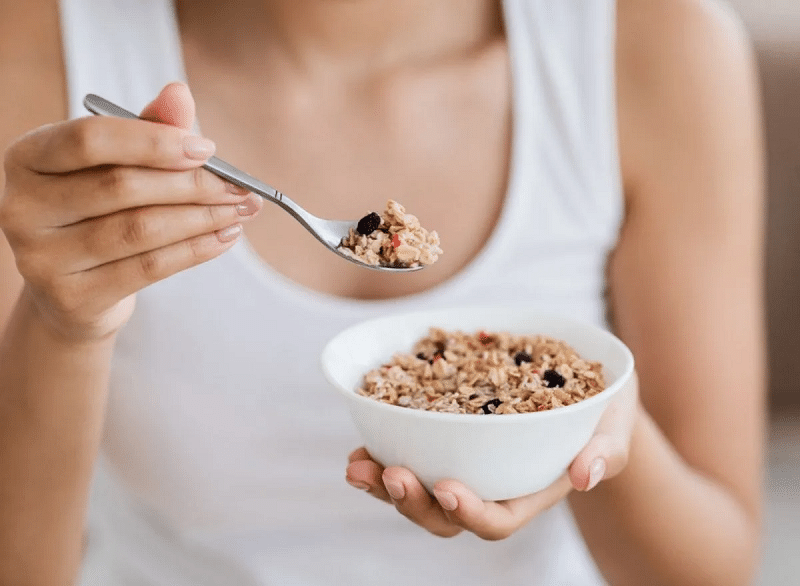If you were to picture what happens when you dig into a bowl of oatmeal in the morning, you might imagine the benefits of each bite dispersing out to various parts of your body. After all, oats are a sure bet for protecting your heart, strengthening your blood vessels, and slimming your waistline. However, they also have a lot to offer the body part where they spend the most time: your gut!
As a whole grain food full of fibre, antioxidants, and other nutrients, oatmeal flexes some heavy-duty force for good in your belly. These are some of the reasons to add oatmeal to your diet.
It can reduce constipation.
According to the British Journal of Nutrition found that, in people with no history of bowel disease, oats and oat bran could significantly increase stool weight and decrease constipation.
It’s likely that the bran portion of the oat grain is responsible for oatmeal’s ability to get things moving. In a 2008 study on nursing home residents, those who received oat bran supplement were more likely to be able to stop using laxative medications. Moreover, it’s not just older people who can benefit from oatmeal’s evacuating effects. A 2020 study on children concluded that oatmeal might reduce constipation symptoms like gas, straining, and a feeling of incomplete evacuation.
It slows digestion, keeping you fuller longer.
Apart, from lowering cholesterol and improving blood glucose control the type of fibre in oats have some pretty special effects on your gut. Because it creates a viscous, gel-like substance in the GI tract, it slows down digestion, keeping you fuller longer and makes you lose weight.
It feeds your microbiome with prebiotic fiber.
Oatmeal promotes good fibre in your gut. As a prebiotic fiber, it help improves the growth and colonization of certain helpful strains of gut bacteria. A microbiome rich in healthy bacteria has health benefits, like reduced risk of Type 2 diabetes, depression and obesity.
It might improve symptoms of bowel diseases.
If you live with celiac disease or inflammatory bowel disease (IBD), don’t be surprised if your doctor or dietitian recommends oatmeal for your morning meal. Some research has found that eating more oat bran could result in small improvements in symptoms of ulcerative colitis.
Meanwhile, since oats are gluten-free, they’re an ideal grain for folks with celiac disease.
On the other hand, if you’re experiencing diarrhoea during a celiac or IBD flare, you may prefer to avoid oats for a while. Some people find its soluble fibre to be too much for their GI tract to handle when suffering from loose bowels.


